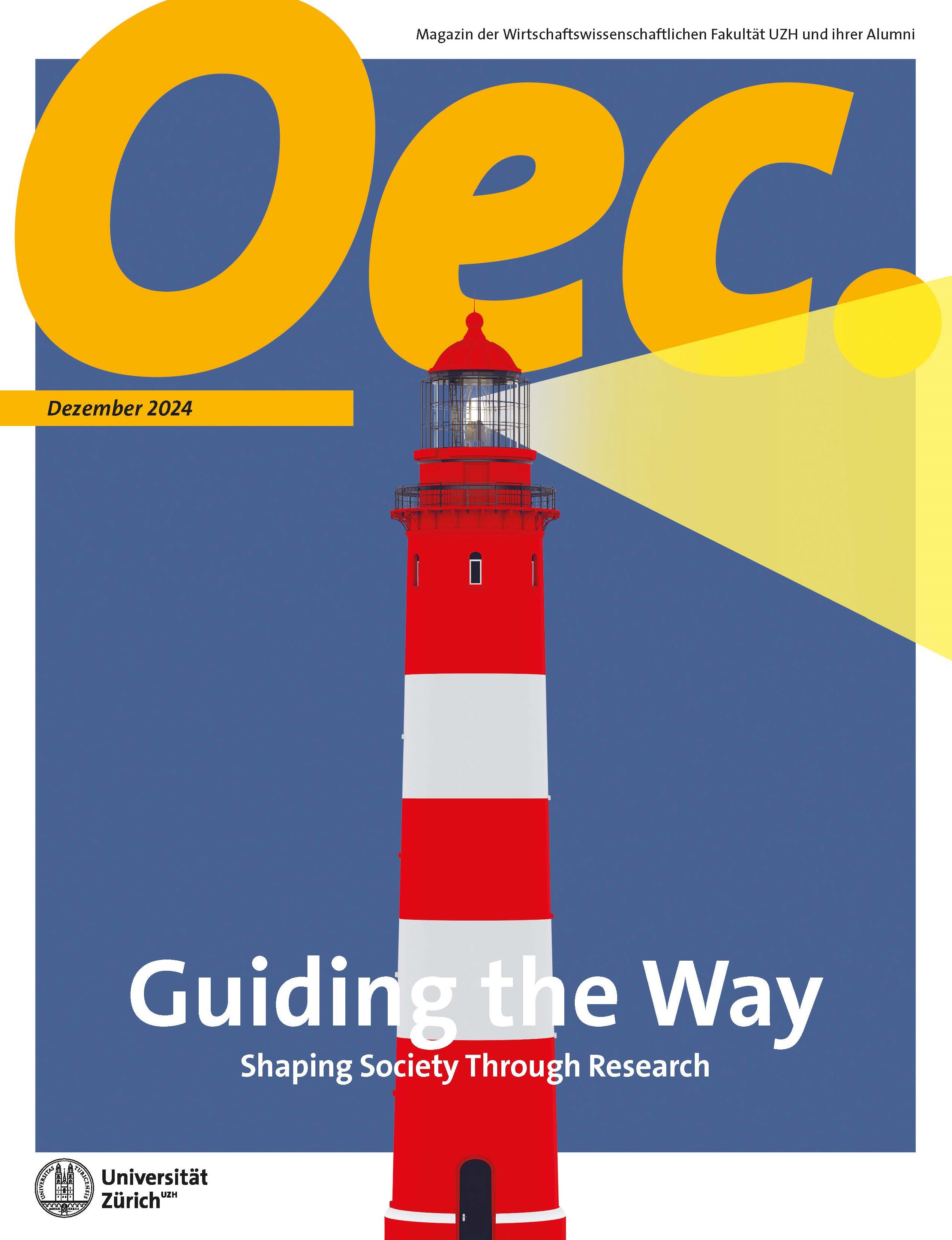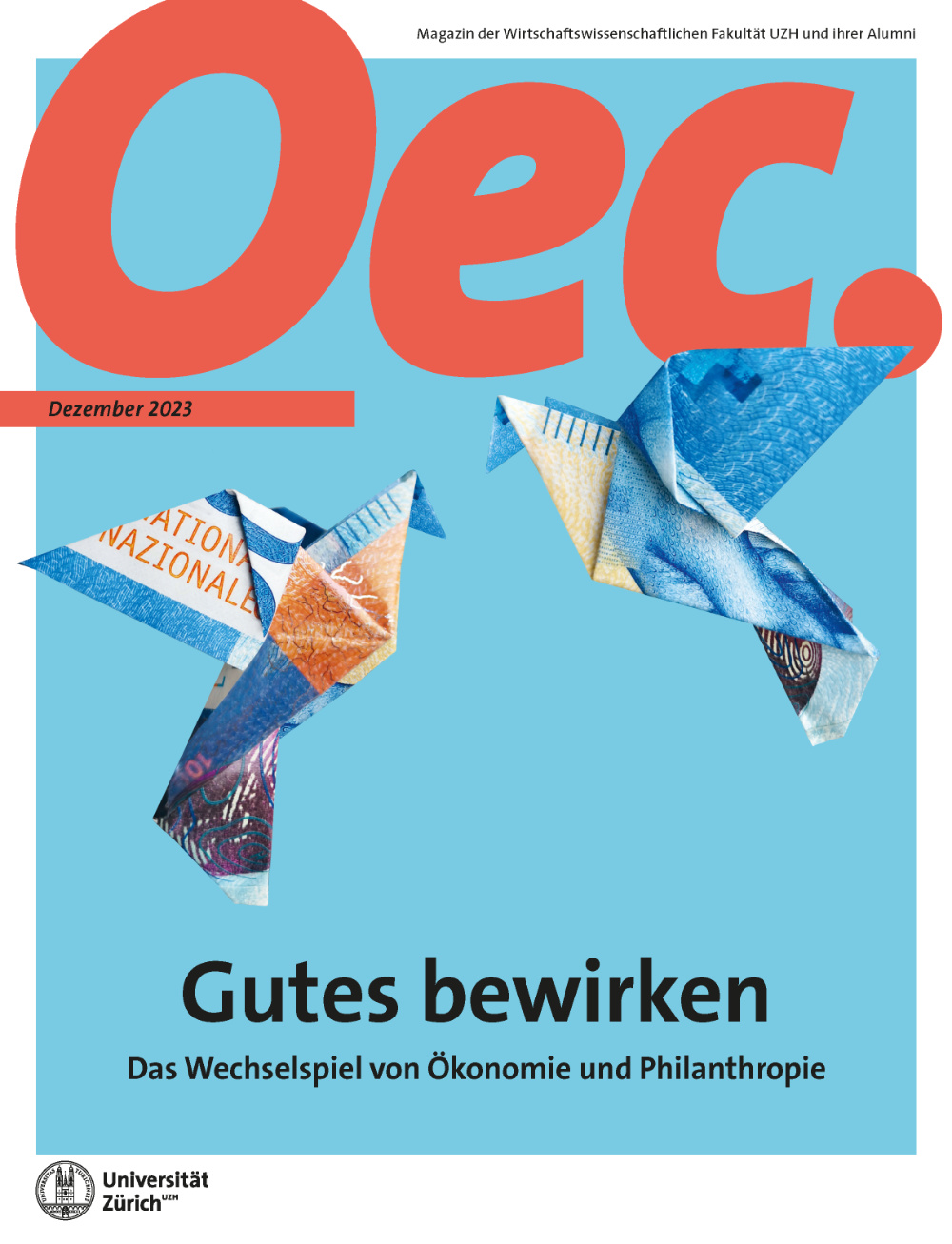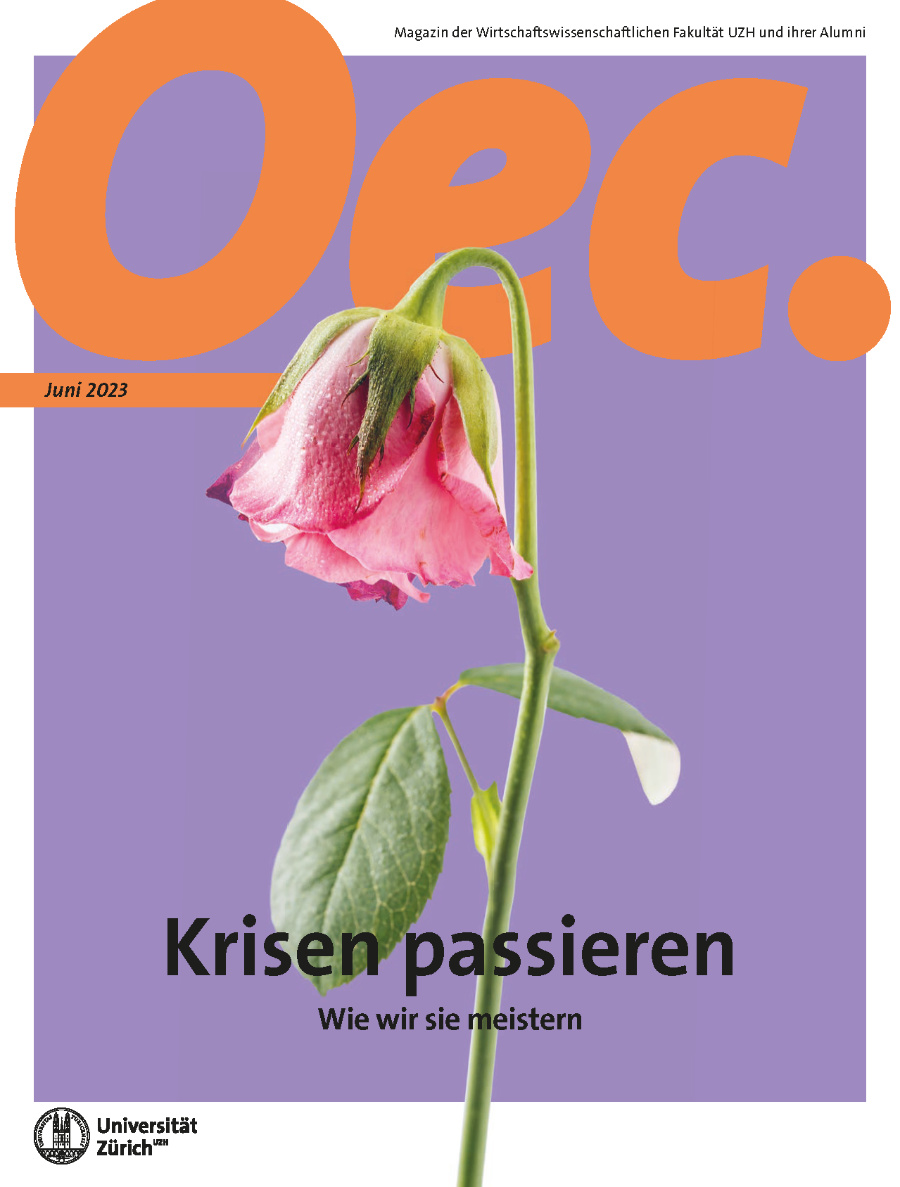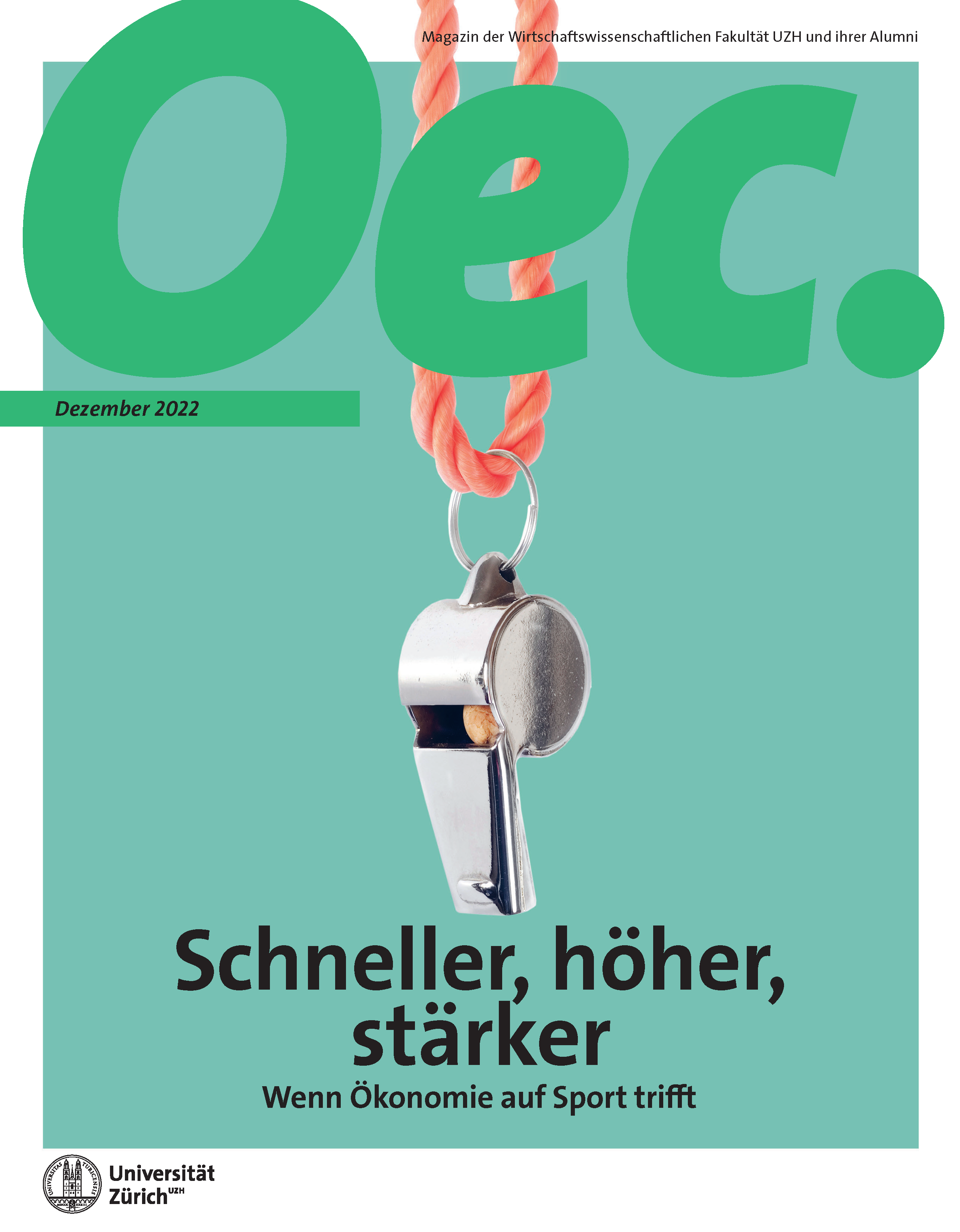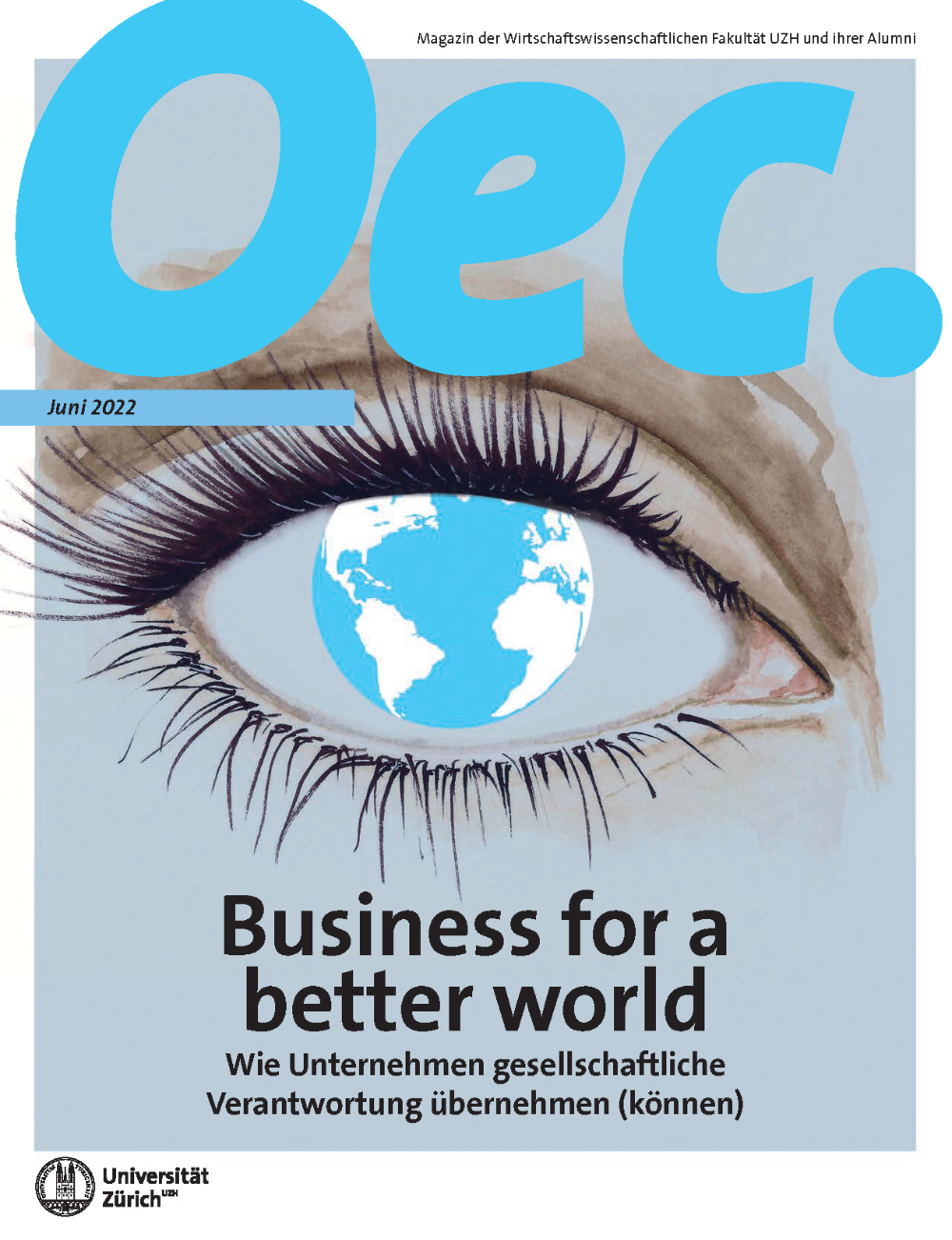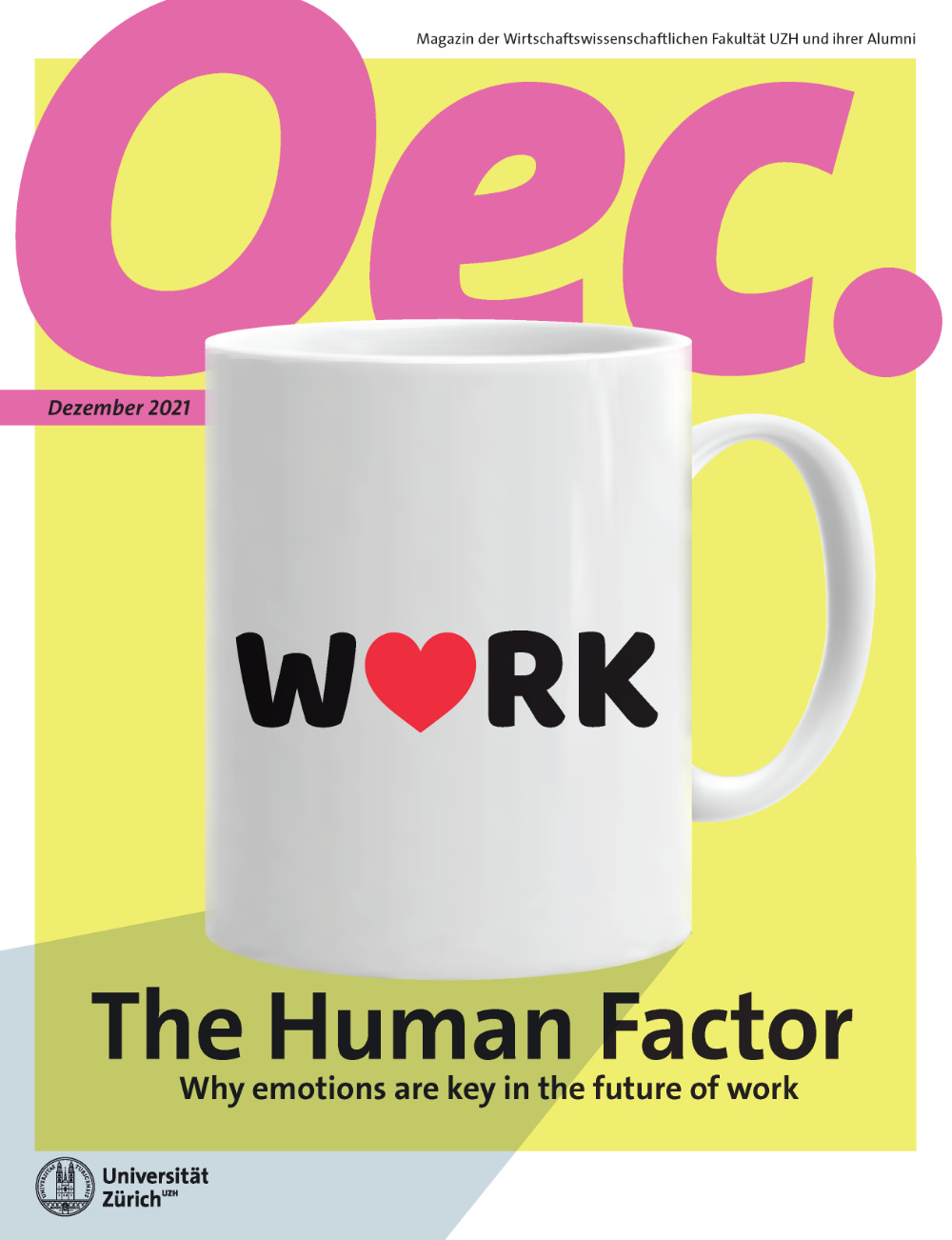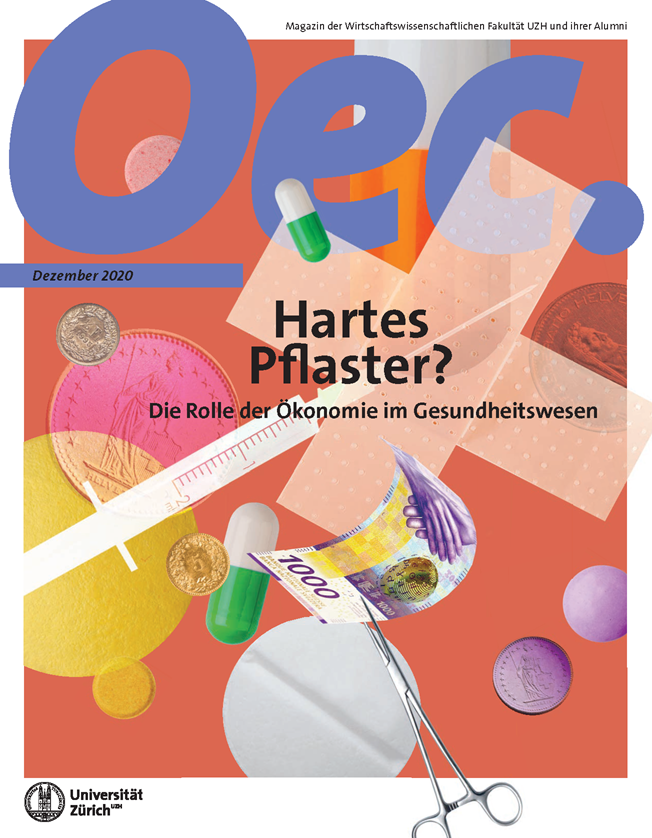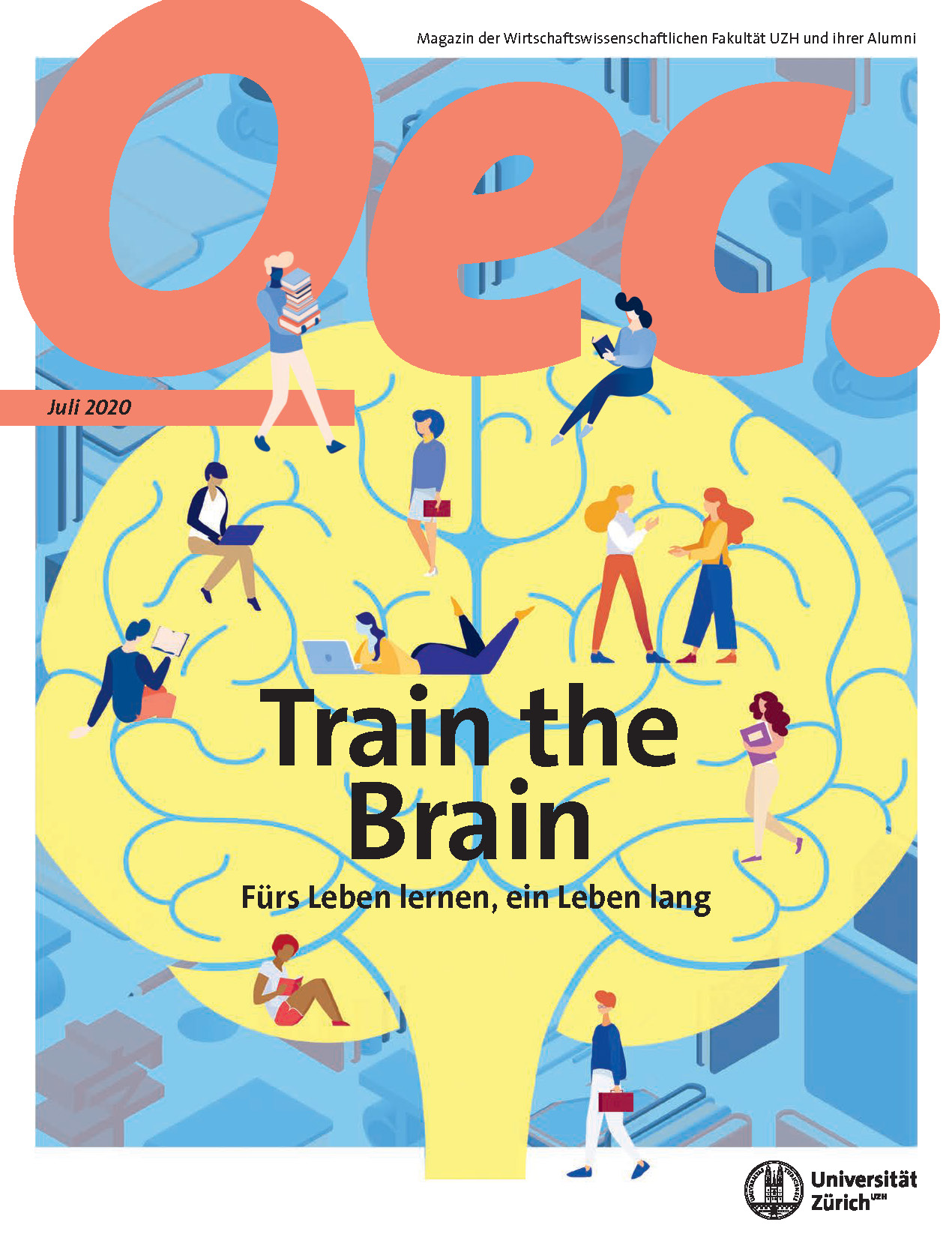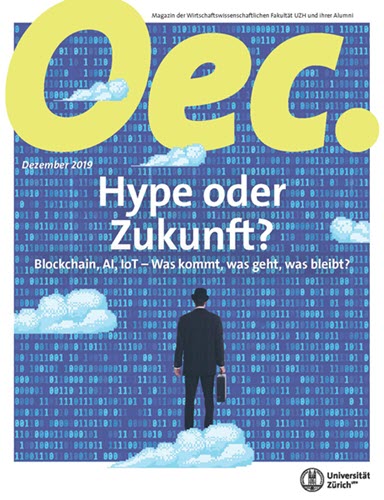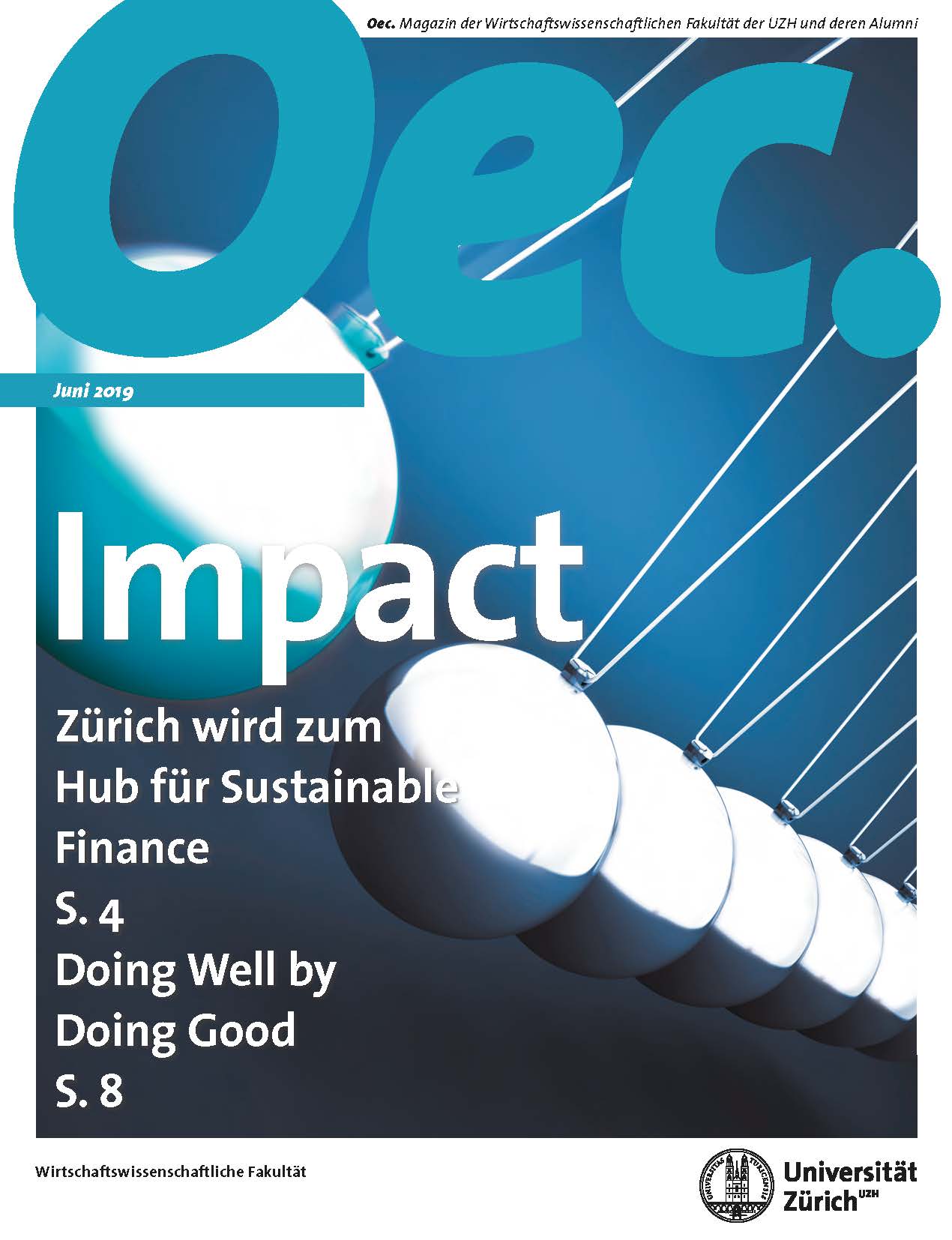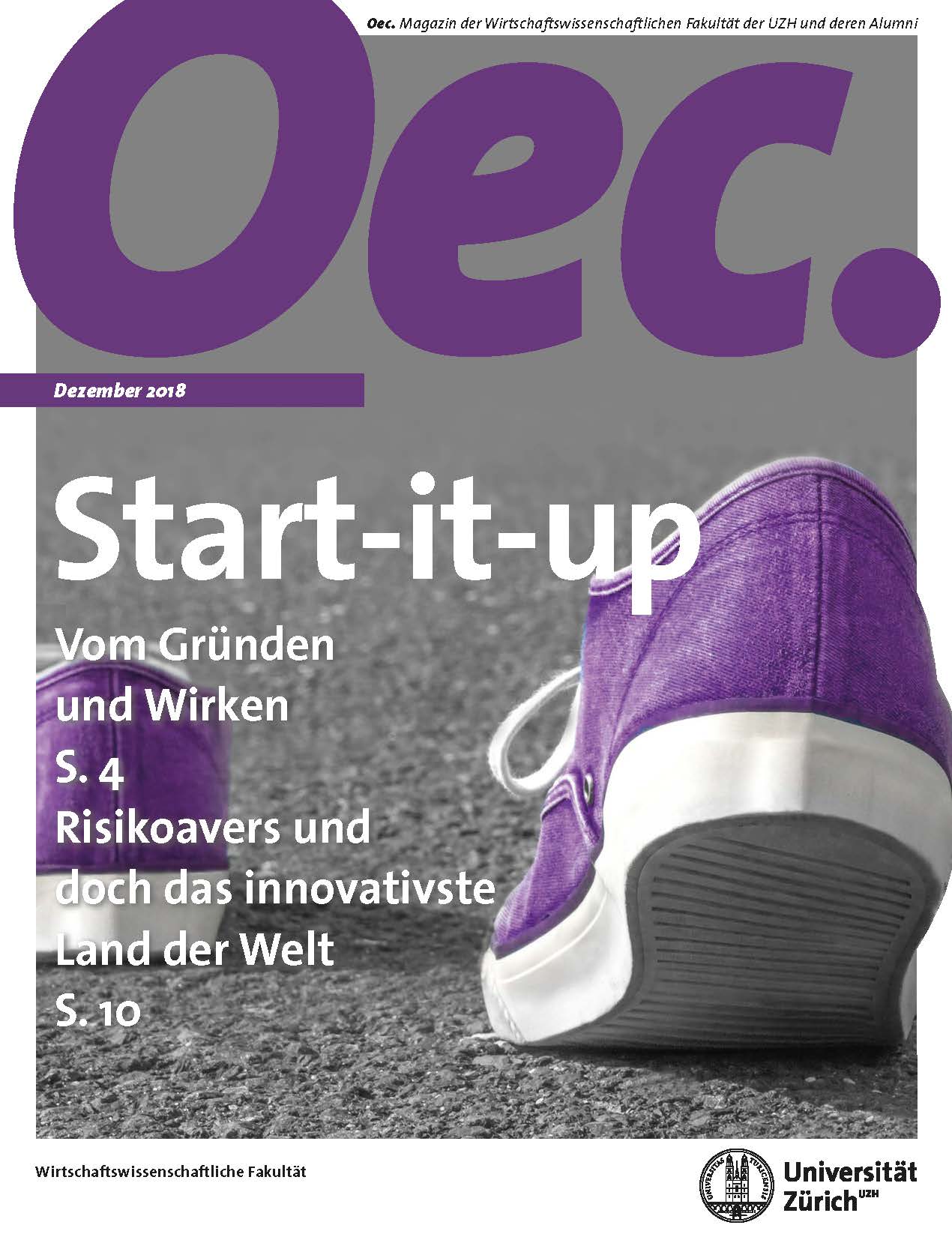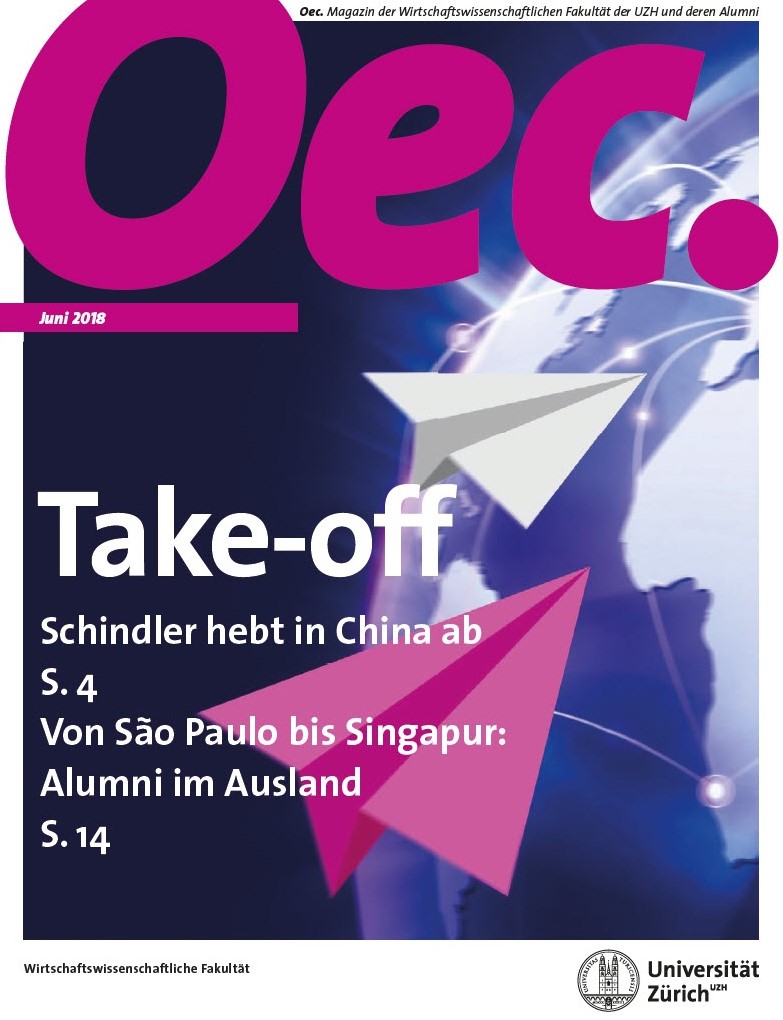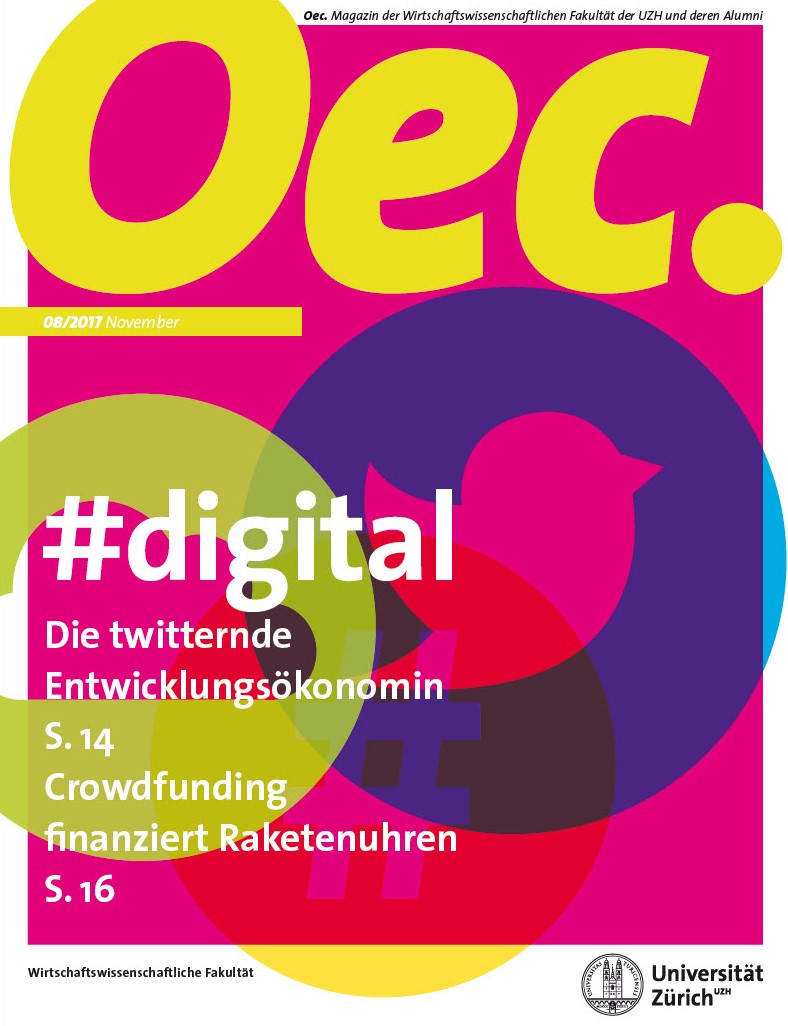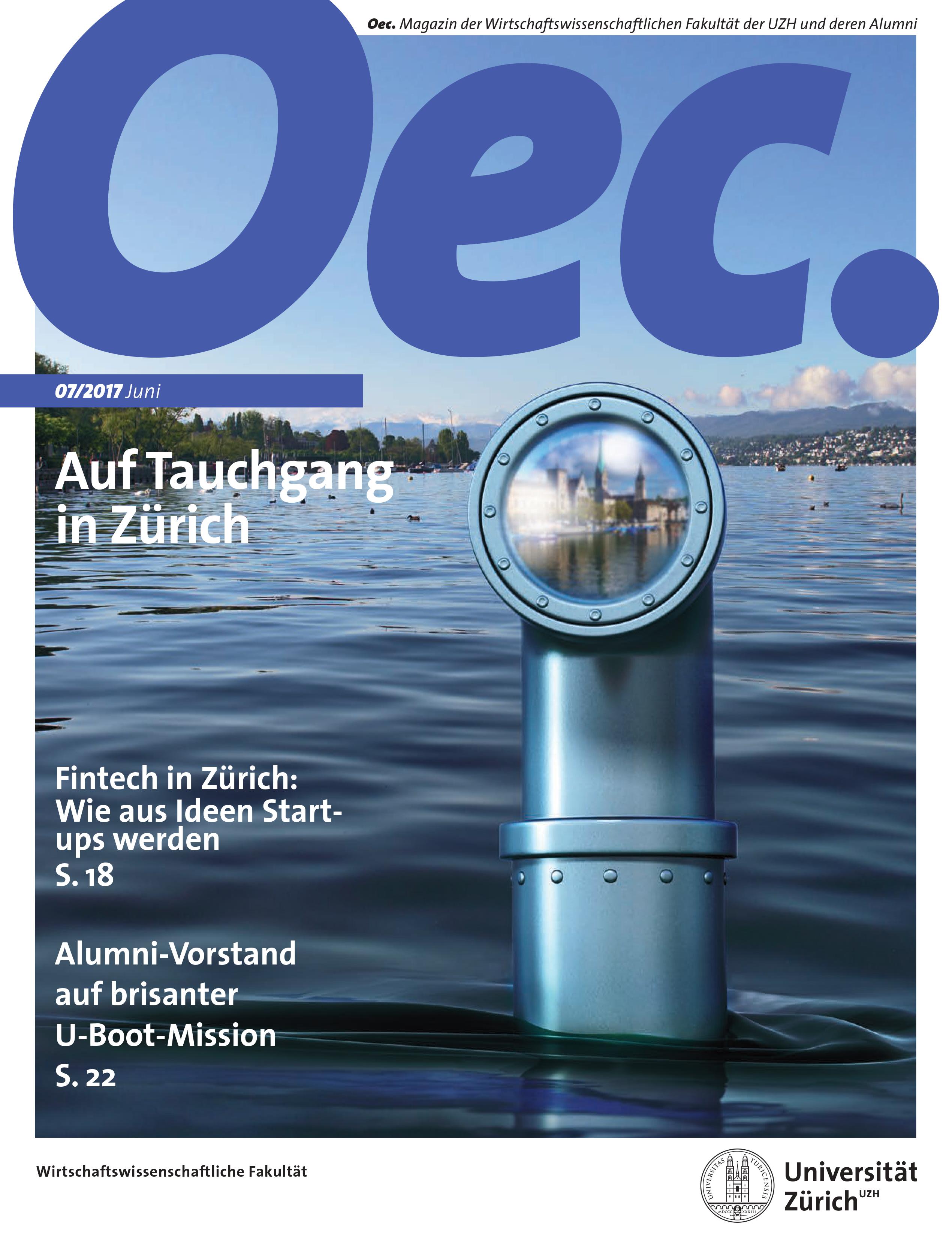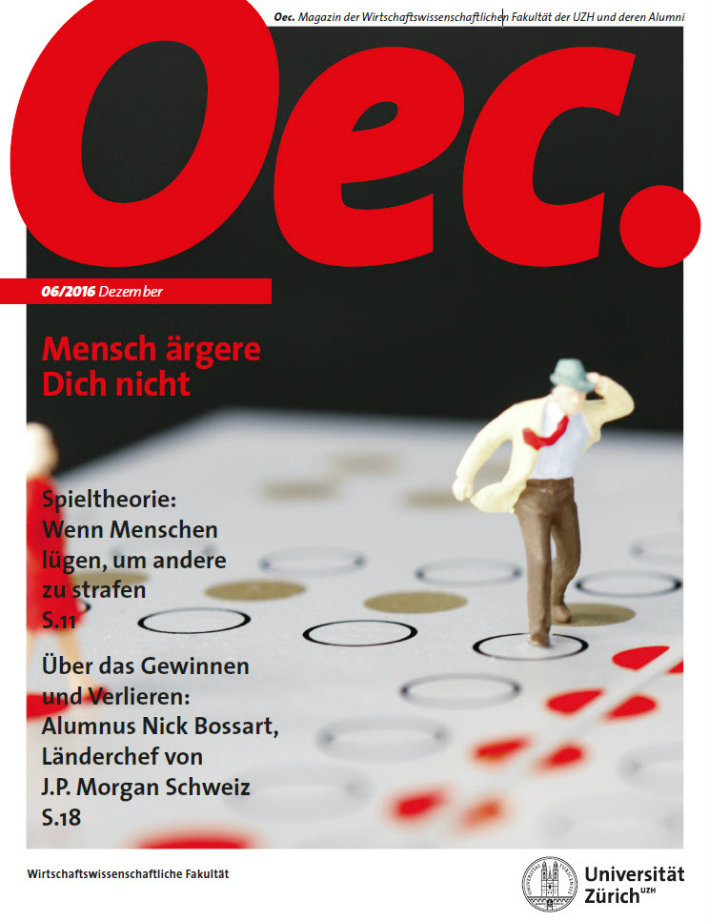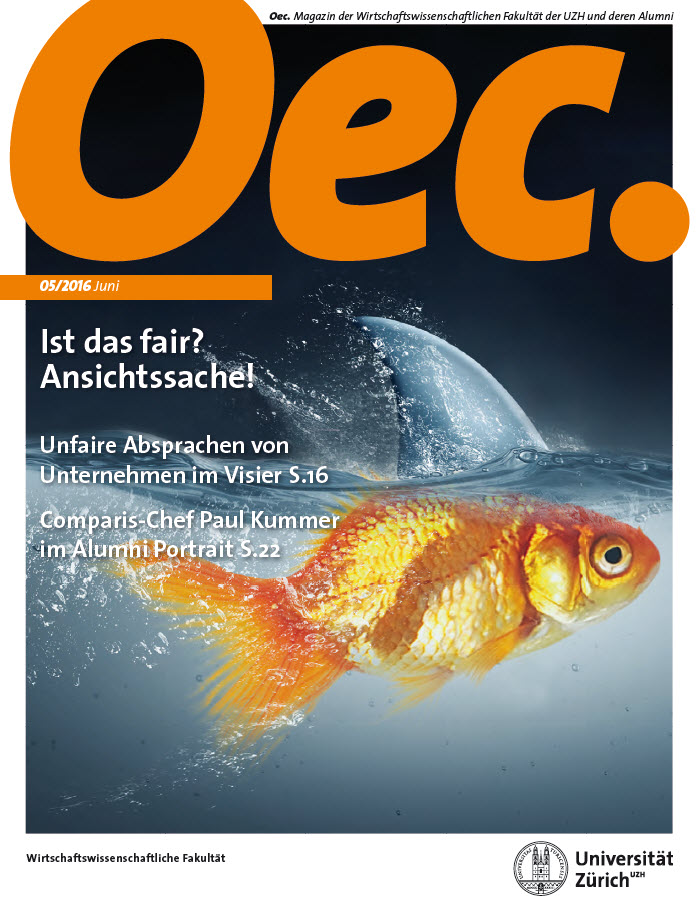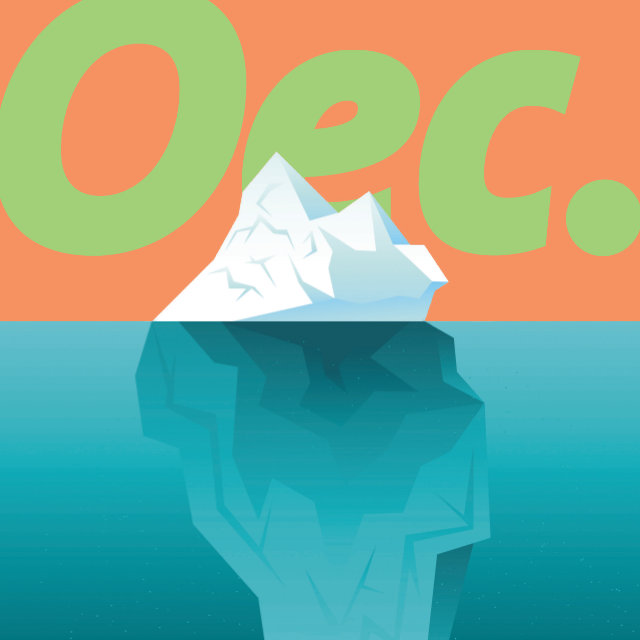Oec. Magazine
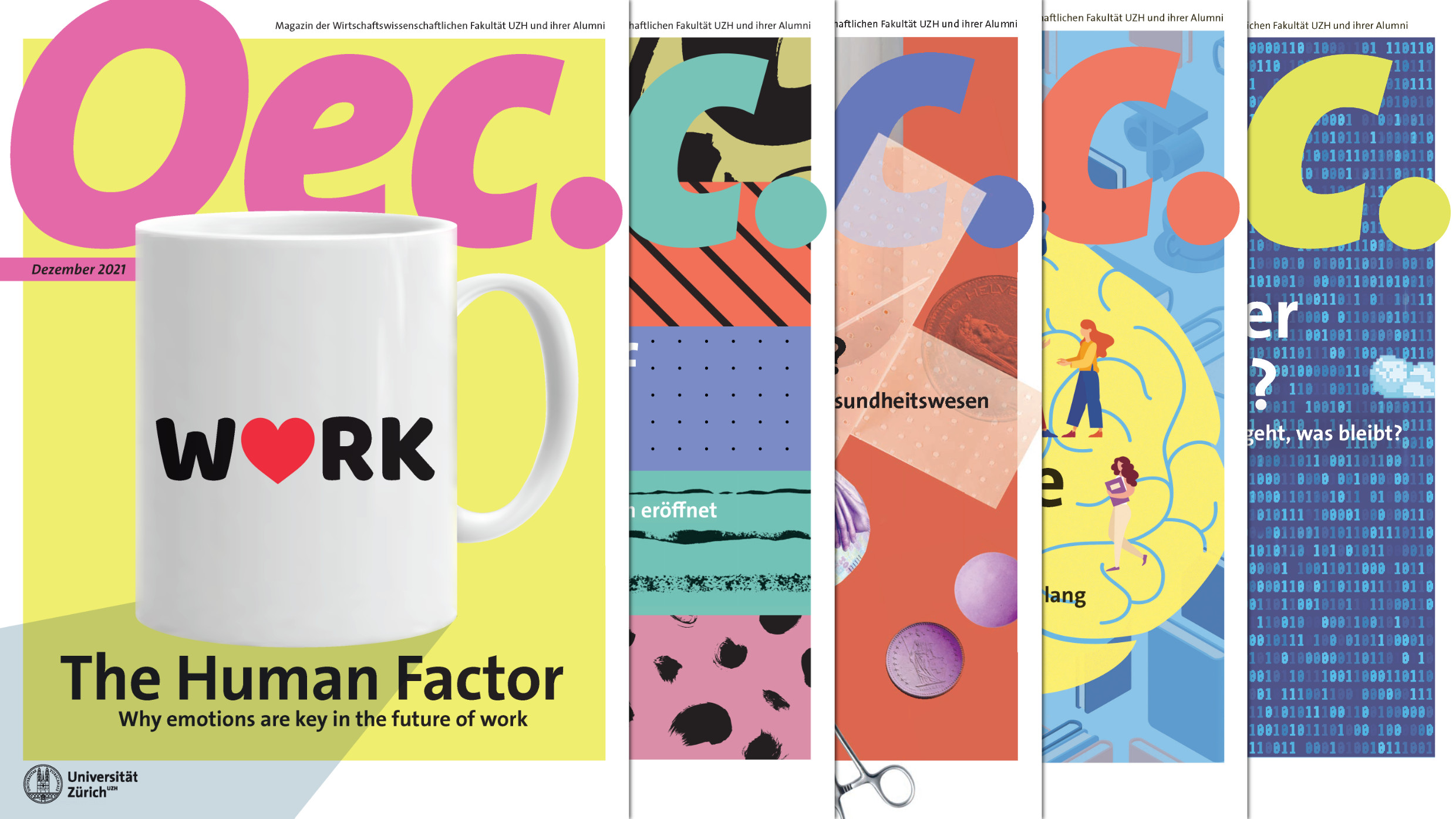
Twice a year the Oec. Magazine provides insights into current projects and research findings, news from the Alumni network, as well as developments from all areas of the Faculty of Business, Economics and Informatics.
Subscription
The Oec. Magazine is published twice a year and can be subscribed to free of charge. Following the same link you can also unsubscribe from the list of recipients or register a change of address:
Subscribe / Unsubscribe / Address change
Advertise
With a circulation of 11,000 copies, the magazine reaches alumni, stakeholders, students and members of the Faculty of Business, Economics and Informatics worldwide. Would you like to advertise in the Oec. Magazine and reach this exciting target group?
Grid containing content elements
With artificial intelligence becoming increasingly integrated into our daily lives, ensuring its ethical use is more critical than ever. However, this is easier said than done. The current issue of the Oec. Magazine explores the challenges of translating ethical principles into real-world practice.
Issue 23, June 2025
Over the years and across disciplines, our Faculty has developed a pioneering lighthouse function in three areas: Empowering policymakers, driving digital transformation and promoting responsible decision-making. The current issue of the Oec. Magazine presents a handful of such projects with significant societal impact.
Issue 22, December 2024
Around 18,000 people have graduated from the UZH Faculty of Business, Economics and Informatics since it was founded in 1992. They are all important players and ambassadors in business and society - and the reason why the alumni magazine Oec. was launched exactly ten years ago. The anniversary issue is dedicated entirely to our alumni and their diverse lives and careers.
Issue 21, June 2024
Philanthropy and economics are linked in various ways. This may seem surprising at first glance, but it becomes clear on closer inspection. Philanthropy can promote economic development and, conversely, economic considerations are needed for effective and sustainable philanthropy. This interplay is the focus of the current issue of the Oec. Magazine, together with the question of how philanthropy can benefit from insights from economics and informatics.
Issue 20, December 2023
Shortage of skilled workers, supply bottlenecks, energy crisis, Ukraine war - at the moment, crisis follows crisis. Nothing new, really. After all, there will always be crises - and they usually occur unexpectedly. So how can we develop more competence and resilience to master crises or even use them productively?
Issue 19, June 2023
Sporting achievements and economic interests often go hand in hand today. Many sports have undergone massive professionalization, economization, but also commercialization. What consequences does this have for sport – and how is it shaped by funding issues and data analysis? This question is explored in the current issue of the Oec. Magazine.
Issue 18, December 2022
The business of business is to make business – this guiding principle is only partially true today. Assuming social responsibility is no longer a zeitgeist, but has become a basic attitude. A basic attitude that consumers and employees demand – and that companies should and want to follow. So how can companies contribute to a better world? The Oec. Magazine explores this question in its latest issue – with a look at different industries.
Issue 17, June 2022
We live in challenging times: Changing value systems and new technologies demand our adaptability – also in the future. But what role do people play in the «Future of Work»? Which aspects and skills will be in demand in the future? How important are emotions? And what can companies, managers and everyone themselves do to create the desired version of the future? The Oec. Magazine in search of the role of people in the future of work.
Issue 16, December 2021
Promoting diversity is not only right, it is smart. After all, every person is unique per se and ensures heterogeneity in our society. More diversity therefore means more perspectives, better ideas and more creative solutions. How do concerned and committed individuals within the Faculty of Business, Economics and Informatics (WWF) experience diversity? And with which projects and initiatives do UZH and WWF address the issue? The Oec. Magazine on the trail of diversity of perspectives and equal opportunities.
Issue 15, June 2021
The coronavirus pandemic has highlighted the tension between economic and ethical-humanistic considerations like no other event in recent decades. Dealing with the coronavirus is a daily balancing act between measures designed to protect the health of the population and the economy. It is an unparalleled tightrope walk. However, even before the corona crisis, economic considerations had an impact on the healthcare industry. The Oec. Magazine searches for clues in the field of tension between economics and health.
Issue 14, December 2020
Education does not simply stop after compulsory schooling. It accompanies us throughout our lives - today more than ever: the rapid changes in the labor market require constant further development and agility. How do the University of Zurich and the Faculty of Business, Economics and Informatics respond to the demands and needs of trainees and apprentices? And how do people from science and business assess the importance of education and teaching at universities? This issue provides insight into the world of education in academia and business. It shows how education is changing (even in times of the Corona pandemic) and what value lifelong learning has for our alumni.
Issue 13, June 2020
Buzzwords like Internet of Things (IoT), Artificial Intelligence (AI), Blockchain or Machine Learning are on everyone's lips. Many of these terms are omnipresent, but for most people they are not (yet) tangible. What is really behind them? The Oec. Magazine looks for concrete answers and examples in science and business. What is just hype - and what is already standard? How are our Faculty and its departments reacting to the new technologies? Where do companies from business and industry currently stand? And what role do the new technologies play in the everyday working lives of our alumni?
Issue 12, December 2019
Profit is not always the top priority. A growing number of companies are increasingly focusing on sustainability and social added value. Responsibility for the future also plays a central role in research. Sustainable finance, in particular, is currently a hot topic.
Issue 11, June 2019
Last year alone, over 43,000 companies were founded in Switzerland, almost one in five of them in the canton of Zurich. The economic framework conditions contribute to a thriving start-up scene and provide room for entrepreneurship. This is demonstrated by the success stories of our alumni, who are cleverly exploiting social trends and new technologies.
Issue 10, December 2018
We send about 800 talented people out into the world every year and attract the world's best to our Faculty for research and teaching. Over the past decade, we have become international in the mix of our students, faculty and research. Our alumni are also making things happen around the globe. Take a trip around the world with us.
Issue 9, June 2018
On the occasion of the 25th anniversary of the Faculty of Business, Economics and Informatics, we take you on a journey of discovery through the digital world: How do SRF presenter Patrizia Laeri and UBS chief economist Daniel Kalt use social media? Does it also make sense for researchers? And why is a video game being developed at the faculty?
Issue 8, November 2017
We want to know: Is Bahnhofstrasse losing its shine due to stagnating rents and lower demand for luxury watches? How has SIX managed for decades to be one of the best stock exchanges in the world with innovative new features? And what is a submarine doing in Zurich? Come with us on a tour of the city.
Issue 7, June 2017
Would you be willing to lie to punish someone for their wrong behavior? How can start-ups avoid annoying – and possibly existence-threatening – mistakes? And what role do human factors play in banking? Human, annoying and playful things under the microscope.
Issue 6, December 2016
Is it fair that people earn different amounts, that companies can drag out antitrust proceedings and continue to enrich themselves in parallel, that profit is apparently more important than the needs of customers in some financial products? What is fair and what is not often depends on one's point of view. A value put to the test.
Issue 5, June 2016
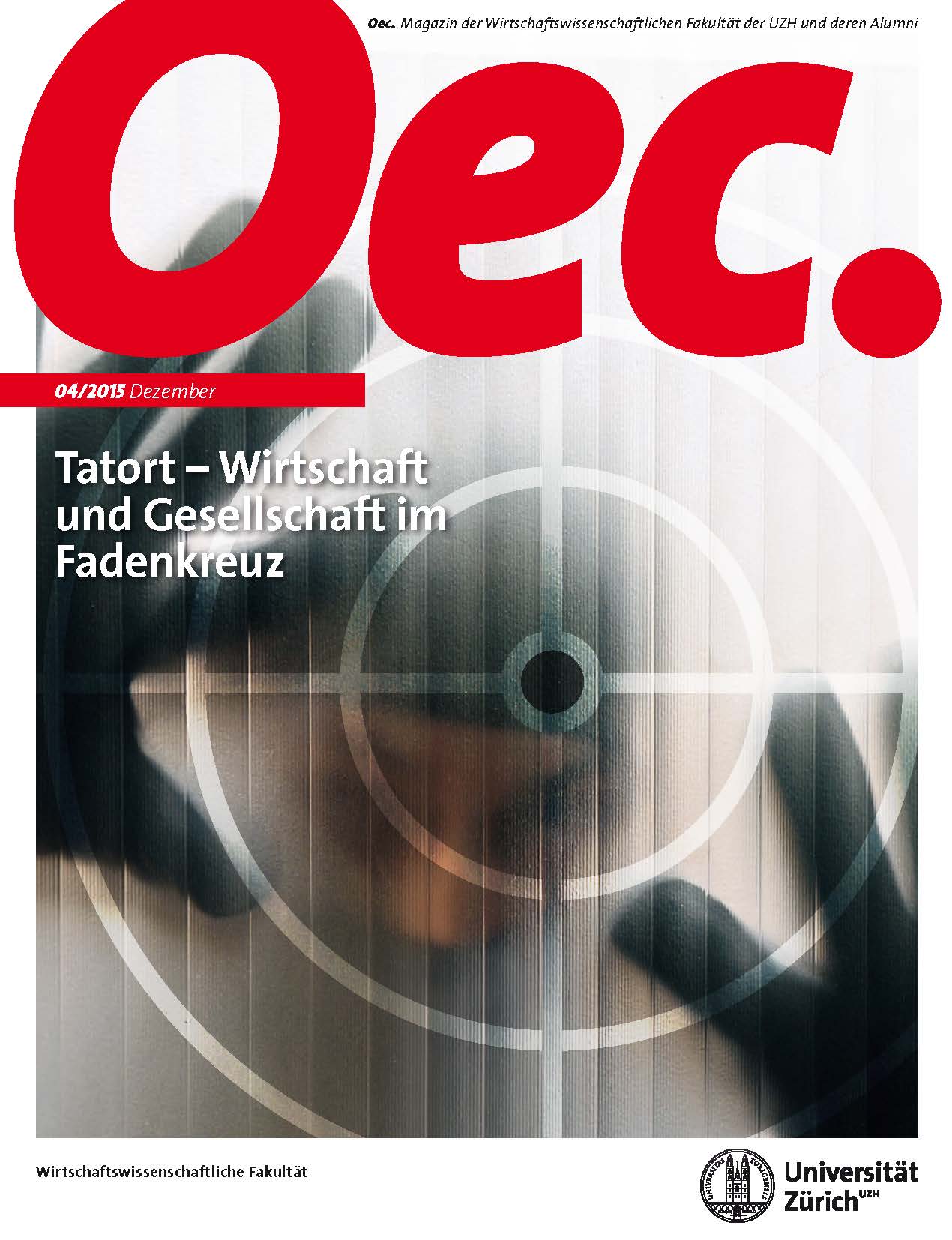
Oec #4 | Crime Scene - Economy and Society in the Crosshairs
Crime scenes are part of life: crises, lies, crimes. Whether in the economic or social environment, they guarantee an exciting – and probably inexhaustible – field of research with direct benefits for practice. Business as a crime scene: How do you track down economic crimes? How do you communicate crises? Crime scene society: How do employees behave after a bank robbery? Why is it often difficult for criminals to escape the vicious circle?
Issue 4, December 2015
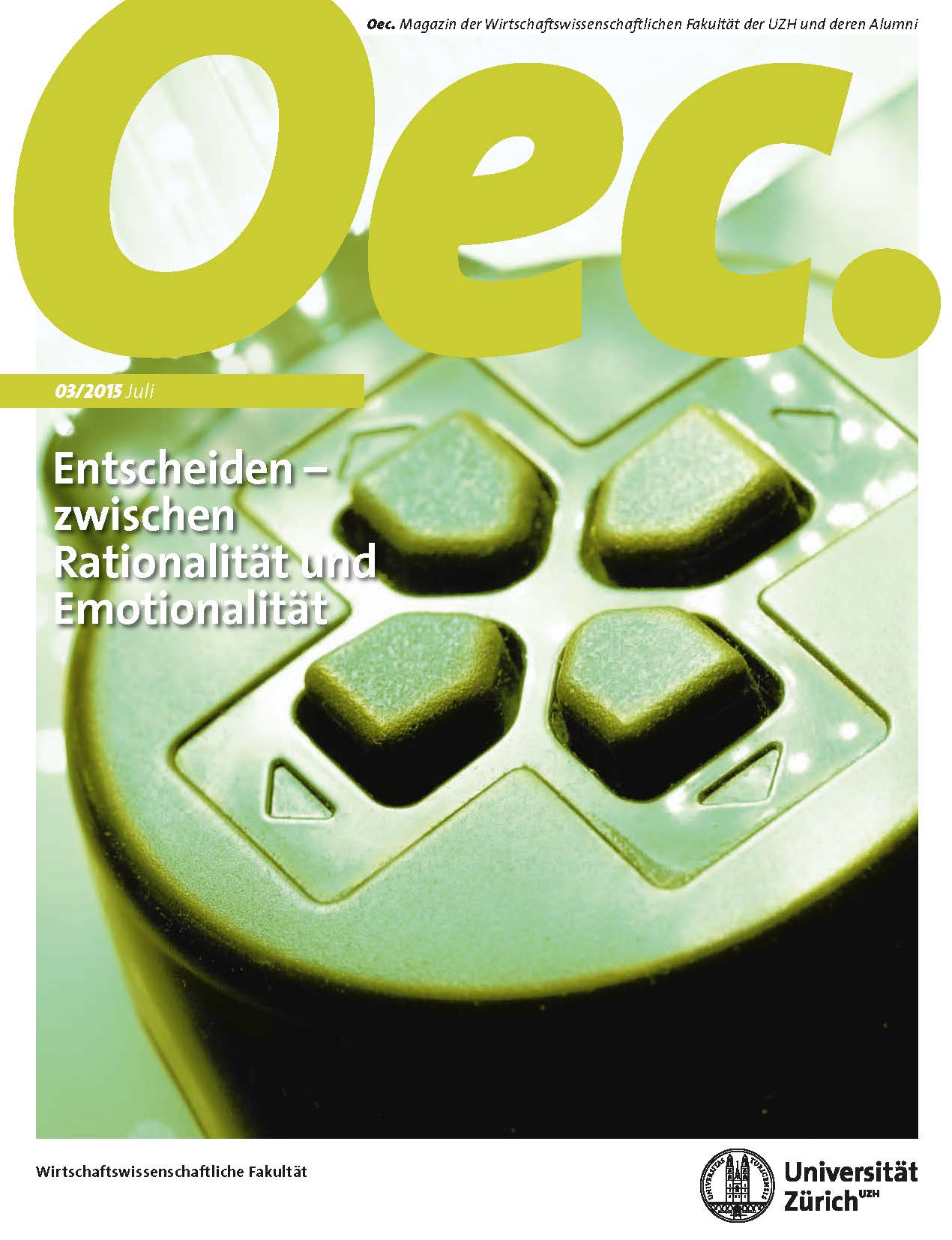
Oec #3 | Decision-Making - Between Rationality and Emotionality
Every day, we make thousands of decisions, sometimes faster, sometimes slower. An interplay of rationality and emotionality. Life demands difficult and easy decisions. What methods are used to study decisions at the University of Zurich? What are the challenges of big decisions and what influence do different cultures have?
Issue 3, July 2015
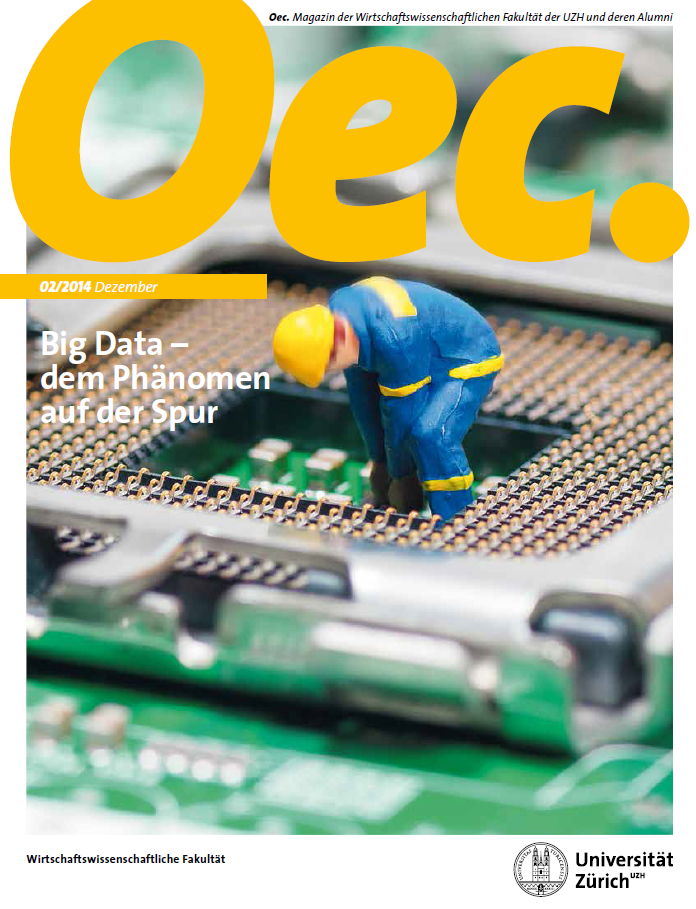
Oec #2 | Big Data – On the Trail of the Phenomenon
Big Data is everywhere. Data is being collected at top speed, stored in huge quantities and constantly re-linked. What does this development mean for the university? Where does the business with data lead and who uses it? And how is Big Data in harmony with data protection?
Issue 2, December 2014
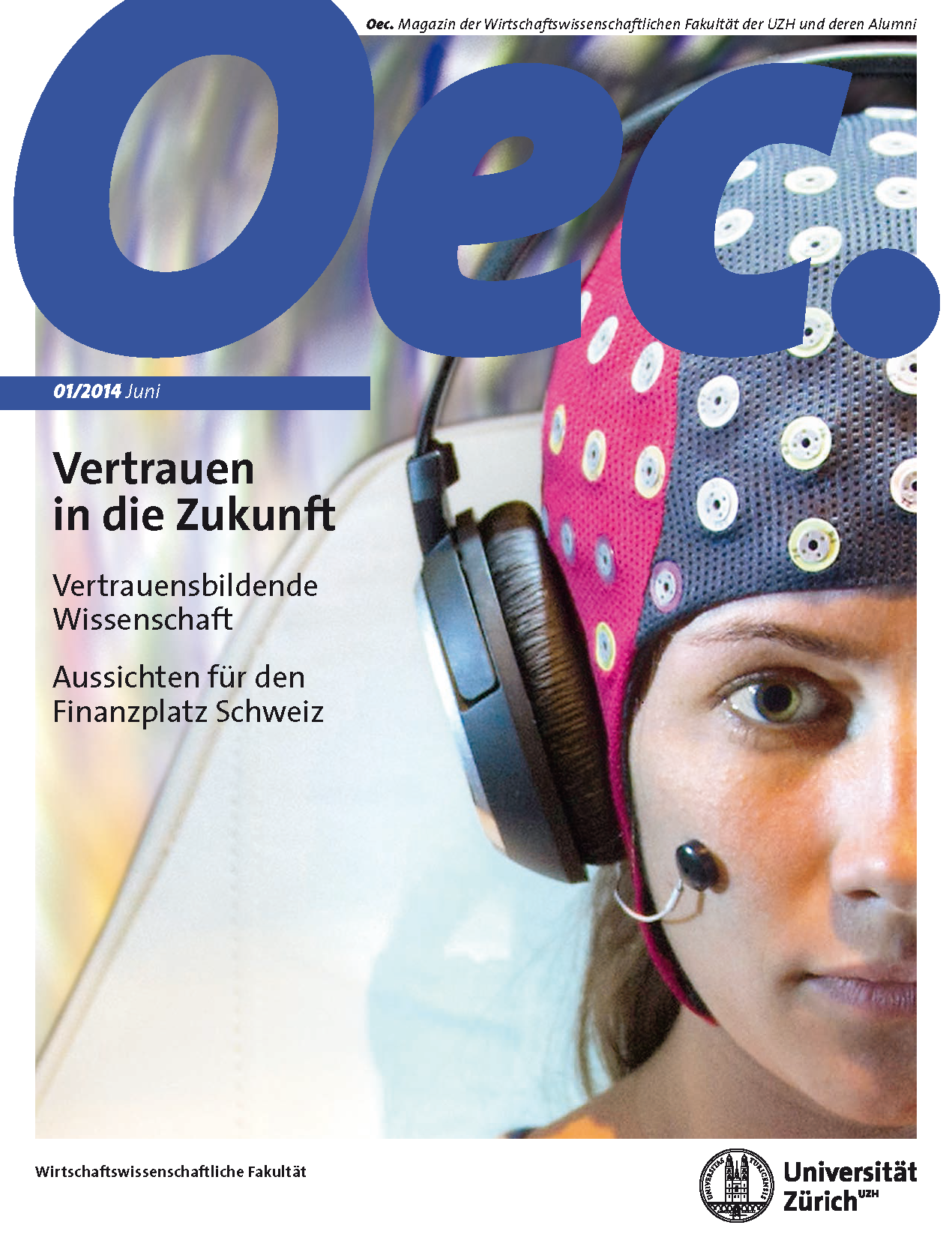
Oec #1 | Trust in the Future
Nothing works without trust. What constitutes a trust-building science? How should trust be rebuilt in the economy, in the financial market? Calls for transparency and the right degree of regulation – what are the prospects for the Swiss banking center?
Issue 1, June 2014

